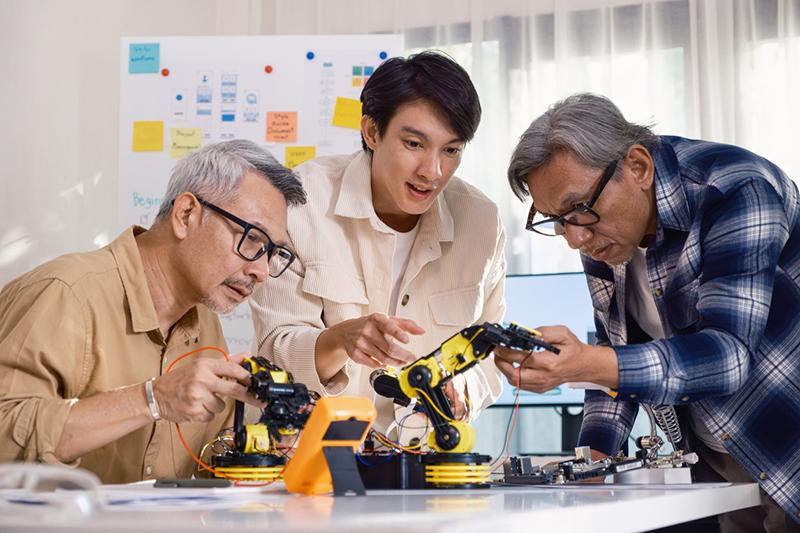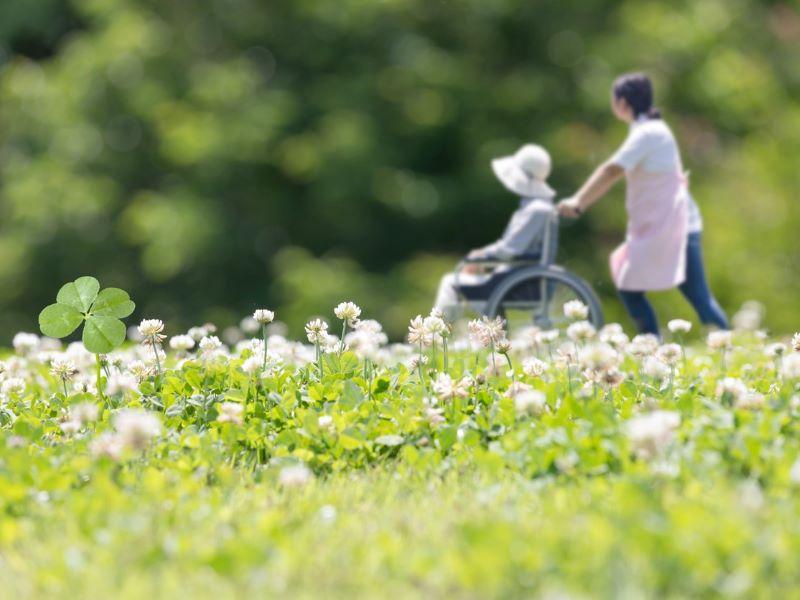With evolving labour markets and longer-lived populations, lifelong learning is no longer a luxury but a necessity in developed nations. Governments worldwide are actively promoting reskilling and upskilling initiatives, often subsidising programmes to engage working adults in continued learning. In response, universities have developed flexible, specialised and often accelerated programmes designed for adult learners.
To effectively serve this new demographic of non-traditional students, practitioners also need to adapt their teaching strategies based on findings from the science of adult learning. Older students bring different cognitive abilities and life experience to the classroom from school-leavers. Thus, the science of learning can be helpful for university practitioners teaching increasingly diverse age groups in their classrooms.
Here, we offer insights based on our systematic review aimed at distilling key findings from research on the science of adult learning focused on cognitive ageing and effective interventions to support learning.
Cognitive ageing refers to the gradual changes in cognitive abilities that occur naturally as healthy individuals grow older. This complex process affects a broad range of functions such as memory, attention, processing speed and problem-solving skills. While these changes do not necessarily interfere with daily functioning, they can influence the way adults learn.
What does science of adult learning research say?
Findings from our review show that cognitive ageing is not uniform. Contrary to popular belief, while some mental abilities like working memory and processing speed decline with age, others remain stable or even improve. Particularly, implicit learning – which occurs without conscious awareness and includes acquiring new habits or motor skills – emotional intelligence, motivational regulation (the ability to direct efforts even in the face of setbacks) and crystallised abilities (knowledge, vocabulary and experience-based skills) are relatively preserved across adulthood. These insights can help practitioners design learning programmes that tap into these preserved abilities and tailor learning strategies to adult learners’ strengths.
- The power of short courses in transforming the workplace
- Imagine an age-inclusive university sector
- How can universities encourage active ageing?
Our review also identified interventions that improve adult learning. Effective interventions included lifestyle actions such as aerobic and strength training; cognitive-based interventions such as cognitive-training programmes; arts interventions such as learning how to play a musical instrument; and others such as the use of AI-based intelligent tutor software. These interventions positively impacted learning-related outcomes such as working memory, attention, metacognitive strategy use and academic performance.
Generally, our findings supported the premise that combined approaches (for example, physical exercise together with cognitive training) yielded the greatest cognitive benefits. However, not all interventions worked equally well, and factors like age, socio-economic status, education level, baseline cognitive function, brain structure, and intervention duration and dose modulated outcomes.
Actionable insights for educators
Supporting adult learners in maximising their potential requires a shift in teaching methods. Educators must move beyond a deficit-based view of ageing and adopt a strengths-based, multimodal approach that leverages what we know about how adults learn.
Here are actionable insights to create more effective and inclusive learning environments:
Lean into the strengths of adult learners
Adults bring a wealth of life experience and cognitive strengths that educators can tap into. Rather than focusing on perceived declines in processing speed or memory, we can design curriculum and lessons to capitalise on these preserved abilities:
Harness crystallised abilities
Connect new concepts to learners’ existing knowledge, vocabulary and experience-based skills. For example, in a business class, use real-world case studies and encourage learners to share their own professional experiences. This framing makes new information more relevant and easier to assimilate.
Embrace implicit learning
Incorporate practice-based or gamified learning where learners acquire skills through doing, often without conscious effort. For example, use simulations or role-playing exercises or integrate hands-on lab work.
Tap into emotional and motivational regulation
Adult learners are often highly motivated and goal-oriented. So, create clear links between the course content and their professional or personal aspirations. Using emotion-based and arts-integrated activities would make learning more engaging and memorable. For instance, have them write reflective journals or create a short video to express their understanding of a topic. This not only reinforces learning but also helps students manage the emotional demands of returning to school.
Adapt teaching strategies for cognitive diversity
While capitalising on strengths is key, educators must also be mindful of cognitive changes associated with healthy ageing. We can adjust our teaching methods to support adult learners, particularly those who may experience slower processing speeds.
Optimise information delivery
Avoid overwhelming learners with too much new information at once. Break down complex topics into smaller, digestible chunks. Scaffold content with adaptive, feedback-rich methods. Instead of a single, large assignment, set a series of smaller tasks that build on each other, and provide immediate feedback. This approach helps reduce cognitive load and boosts confidence.
Provide ample response time
In a classroom setting, adult learners may need more time to process questions and formulate answers. Interspersing short breaks or “think-pair-share” activities can give them space to retrieve information and contribute meaningfully.
Foster an inclusive and supportive environment
A sense of belonging and psychological safety is paramount for adult learners, who may feel a unique set of anxieties about returning to school after a long hiatus.
Leverage adult learners’ prior experiences
Encourage intergenerational collaboration and mentoring opportunities where younger and older students learn from each other. Assign group projects that mix ages and backgrounds. This not only makes use of the diverse experiences in the room but also helps to break down stereotypes and build a stronger, more connected learning community.
Apply technology thoughtfully
While AI-based tools show promise in enhancing learning, these tools should support, not replace, human interaction. We can use them to provide immediate feedback and personalised practice, freeing up class time for deeper discussions and collaborative problem-solving. This balance of technology and human connection is vital for creating a truly supportive learning environment for adult learners.
Embrace an age-inclusive approach to learning
As the global workforce ages and the demand for lifelong learning grows, higher education is entering a pivotal moment of transformation. Findings from the science of adult learning provide a powerful road map for educators to embrace a strengths-based, age-inclusive approach so that universities can ensure that their classrooms become vibrant hubs of intergenerational learning. This not only empowers working adults to thrive in an ever-changing world but also transforms the role of higher education institutions in support of the rapidly ageing global population.
Sally Ng Siew Hiang is a research fellow in the Institute for Pedagogical Innovation, Research & Excellence and the Centre for Research and Development in Learning (Cradle), Adam John Privitera is an education research scientist in the Science of Learning in Education Centre in the National Institute of Education, and Annabel Chen Shen-Hsing is president’s chair professor in psychology and director of Cradle; all are at Nanyang Technological University, Singapore.
This is an edited version of the blog post “What does science tell us about how adults learn?”, which was first published by NTU’s Institute for Pedagogical Innovation, Research & Excellence. The post is based on findings from a research led by Cradle “Cognitive and neural mechanisms of learning and interventions for improvement across the adult lifespan: A systematic review” published in Neuroscience & Biobehavioral Reviews in September 2025 and the evidence brief of the published research. This study was funded by Singapore Ministry of Education (MOE) under MOE-SOL-2023T001. Any opinions, findings, and conclusions or recommendations expressed in this material are those of the author(s) and do not necessarily reflect the views of the Singapore MOE.
If you would like advice and insight from academics and university staff delivered direct to your inbox each week, sign up for the Campus newsletter.




comment